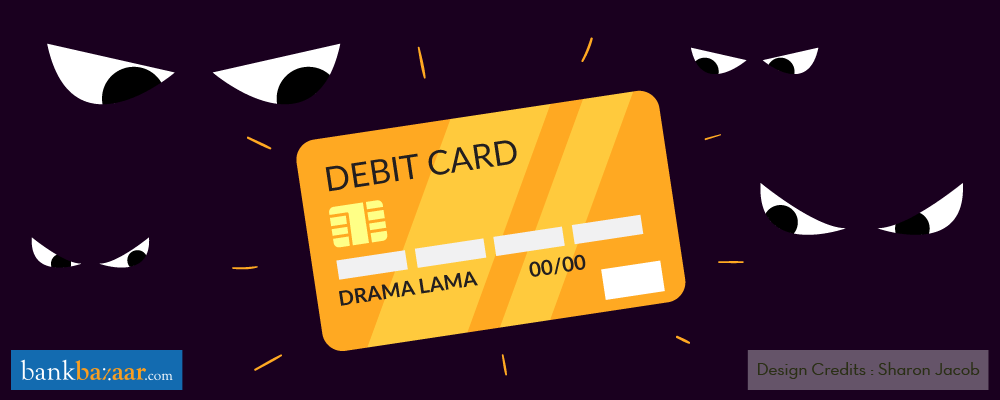
When it comes to security, the last couple weeks have been pretty hard for major Indian banks. According to The Economic Times, about 3.2 million cards have been compromised making this the largest financial data breach to have ever hit India.
Media reports suggest that SBI will reissue 600,000 Debit Cards following a terrible malware attack. Other banks like HDFC, Axis and ICICI have been sending out alert SMSs to customers urging them to change their PINs and use only ATMs of their respective banks to withdraw money or make other transactions.
The breach was apparently triggered by malware released in the systems of Hitachi Payment Services, a third-party payment processor that provides point of sale (PoS) and ATM services around the country. Several customers reported unauthorised transactions at ATMs and other point of sales in China!
Sounds like the ultimate financial nightmare, doesn’t it?
Debit and Credit Card fraud accounts for about 40 percent of all financial crimes around the world. Thieves steal your money using several fraudulent methods like:
- Skimming: A card reader is affixed to a machine in the swiping slot that reads all the information of the card from the magnetic strip.
- Cloning: A duplicate keypad is placed above the original keypad of a swiping machine. It reads your PIN number when you enter it. The payment will not go through but your PIN will be stored in the fake keypad.
- Carding: Hackers gain access to payment servers of big merchants and transfer card information in lists to another server. They use the information to buy gift cards that are used to buy expensive stuff.
- Phishing: Thieves masquerading as banks usually send emails, text messages, or ring up victims on the phone to ask for card or bank details, including PIN and CVV numbers.
Additional Reading: Cards in your wallet – The risk quotient!
Here are four effective ways you can ensure the safety of your Debit or Credit Card:
- Switch to Chip
If you have a magnetic-strip card, upgrade to a chip-based card. If you are getting a new card, request the bank to give you a chip-based card. These cards have multiple layers of security and can be activated only with a PIN number.
- Change Your PIN number
Change your PIN number ever six months or more frequently to avoid falling prey to fraud. Do not share your PIN and card details with anybody. Do not write it down somewhere. It is best to memorize your PIN. Hide your PIN with your hand while keying it in.
Also, do not use random ATMs. It is best to use the ATMs of your bank because they have higher security and are well monitored.
- Sign Up for Digital Alerts
If you haven’t already updated your email id or phone number with your card issuer, do it immediately. Digital alerts are the best way to keep a track of transactions charged to your card. Keep a close watch on your e-statements. Look for suspicious debit/credit transactions and ring up your bank to clarify anything that doesn’t seem right.
As far as possible, refrain from getting printed slips from ATMs. If you have SMS or email alerts, all your transactions will automatically show up on your phone.
- Take Immediate Action
Notice something fishy about a transaction? Didn’t authorise a payment? Contact your bank immediately. Refrain from using the card and request the bank to block it immediately.
You can also limit the daily withdrawal amount on your card which will ensure minimal damage to your account. Do not link your emergency savings account to your regular account.
Check This: Credit or Debit Card: Which One’s Better?
In the aftermath of a Credit Card loss, the procedure to protect your identity remains the same as that of a Debit Card.
But, What if you can’t?
Some Debit or Credit Card frauds are inevitable. According to the RBI, if you have lost money despite taking every precaution, the bank is held liable for the loss. There are a few conditions though:
“Where customer’s own involvement is not clearly established, customer liability will be limited to a maximum of Rs. 5,000 if she reports within 4 to 7 working days and if customer reports beyond 7 working days, customer liability will be determined based on bank’s board approved policy,” the RBI stated.
“The burden of proving customer liability in case of unauthorised electronic banking transactions shall lie on the bank,” it added. The RBI also urged banks to make digital alerts mandatory for all customers.
Also Read: How To Register Your Banking Complaints Online With RBI’s Banking Ombudsman
Being aware of your monetary transactions, spreading out your cash in different accounts, and maintaining your privacy, is the key to your financial safety.
Don’t be afraid to get a card. If you take all the necessary precautions, you’ll be just fine. And don’t forget all the rewards, discounts and cashback that come along with your card!